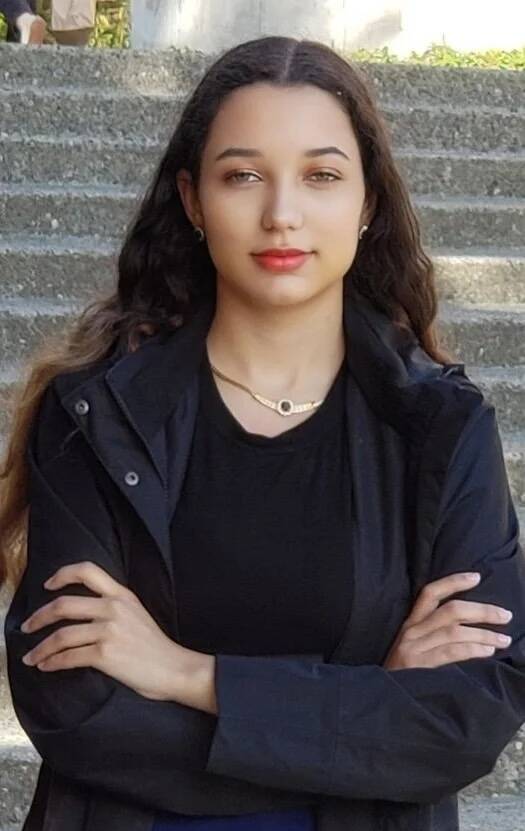Washington’s Woman of the Year has a message for Bainbridge Island girls: tap into your inner determination — and try robotics.
USA Today announced its 2024 Women of the Year cohort Feb 29, just in time for International Women’s Day March 8 and Women’s History Month in March. It’s the publication’s third year issuing a national award for inspiring women throughout the nation. All 50 states have a representative, but this year’s honor for Washington is closer to home.
Merrill Keating, 19, of BI was selected, and her long list of accomplishments at such a young age explains why. She’s a lifelong advocate for women’s equity in Science, Technology, Engineering and Math (STEM). She’s the founder of multiple nonprofits and the team behind Reinvented magazine. Keating brought the first-ever TEDx Talk to BI. She’s a nationally recognized community leader, University of Washington mechanical engineering major and a robotics whiz.
Keating’s work takes her around the globe, and her passion for educational equity shines everywhere. Her success was not a fluke, Keating said, as her formative days as a BI student helped shape her into the person she is today.
“My teachers and mentors saw me beyond stereotypes or generalizations,” Keating said. “They believed in and encouraged my abilities… My experiences on Bainbridge Island drove home the value of hope, resilience and managed expectations.”
It was people like Bainbridge High School assistant principal Warren Read, BHS science teacher and robotics coach Enrique Chee, science educator and four-time Emmy winner Lynn Brunelle, and Woodward Middle School teachers Wendy Kozina and Tim Harris who encouraged Keating to stick with her passions.
Kozina has taught math at Woodward for 22 years, and she has had Keating’s back since 7th-grade pre-algebra. She recalled the honoree’s “energy, positivity, perseverance and grit to be a strong mathematician” — a product of Keating’s inner drive, but also a reflection of Kozina’s teaching philosophy.
“I often tell my students that we are all a work in progress, and we are our most important investment. Students are not defined by a letter they see on that report card. They are defined by their character, motivation and all the attributes they bring to the classroom,” Kozina said. “My job is to give students a foundation so that they can go out in the world and do anything they hope for.”
Kozina’s favorite example of Keating’s motivation goes beyond the classroom. She remembers when she and her son watched Keating earn her black belt in mixed martial arts — a process in which Keating had to compete against every brown belt student in the studio, then face the instructor in combat.
“As I watched her spar flawlessly with each student, she was exhausted, but never gave up,” Kozina said, adding Keating earned her black belt that day. “This exemplifies all of what Merrill is about. She has a passion for something, a will to succeed, and she makes it happen.”
Keating has already established a legacy on BI; she helped lead the BHS Spartronics robotics team, which is ranked in the top 30 teams regionally. But her vision is greater than just medals and competitions — she wants BI educators to step up for girls in STEM.
It’s well-documented that while students may start out on a generally equal footing, girls start to avoid STEM classes more than boys by around age 15. Lack of female role models and mentors, not enough hands-on experience with STEM and social pressure from other teens are among the reasons.
But from Keating’s observations, girls thrive in STEM when given opportunities to “fail upward.” STEM education should be fun, fluid and have peer-to-peer dynamics, she said, “so it’s about experiential lifelong learning and not just getting a certain grade.”
“Staying engaged isn’t the same as getting engaged,” Keating said. “If it was up to me, every BISD school would have a robotics team and every student would be required to participate in it for a year…Failing up should be embraced, not feared.”


